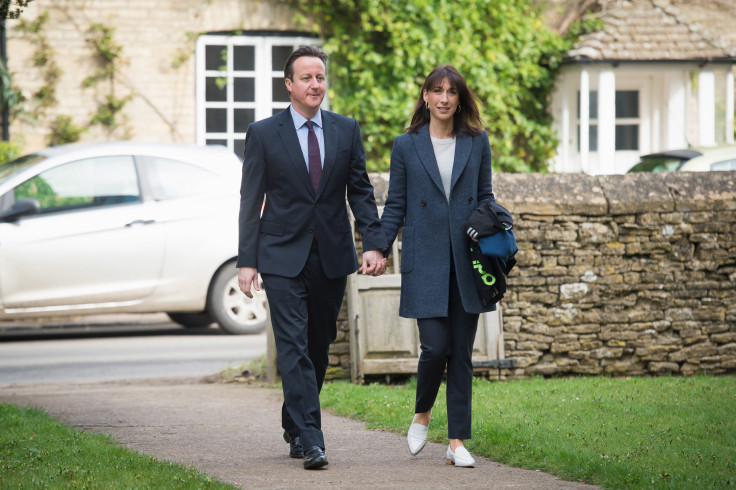Cameron's Approval Ratings Turn Positive Ahead Of Election: Poll

(Reuters) - British Prime Minister David Cameron's net approval rating has edged into positive for the first time in nearly four years ahead of a national election next month, according to a poll published on Sunday.
The improvement in Cameron's personal rating did not translate into a widening poll lead for his Conservative Party however, underlining the unpredictability of the May 7 vote, in which no one party is expected to secure an outright majority.
The YouGov/Sunday Times poll, carried out after a major TV debate this week, found 47 percent of those surveyed thought Cameron was doing well as prime minister, compared to 46 percent who said he was doing badly - his first net positive rating since May 2011.
Opposition Labour leader Ed Miliband, whose personal popularity lags his party's, also saw a boost. YouGov said 33 percent thought he was doing well as party leader, up from 30 percent last month, but still outweighed by the 59 percent who thought he was doing badly.
The main TV debate of Britain's national election campaign on Thursday yielded no clear victor with four opinion polls producing four different winners.
An Opinium/Observer poll on Saturday showed it had also done little to sway voters, with Labour and the Conservatives neck-and-neck on 33 percent each.
That was echoed by Sunday's YouGov poll, which put the Conservatives on 34 percent, down 3 points from their pre-debate level, while Labour were down 2 points on 33 percent.
Scottish nationalist leader Nicola Sturgeon, whose party is expected to capture many Labour seats in Scotland and could hold the balance of power after the election, came across the best of the seven leaders in the debate by far, the YouGov poll found.
Polls have shown the Scottish National Party (SNP), which led a failed bid for Scottish independence last year, could win more than 40 of Scotland's 59 seats in the British parliament.
On Sunday Sturgeon again denied that she had said privately she wanted Cameron to remain prime minister.
Writing in The Observer, she said the report was "100 percent untrue" and called on Miliband to join forces with her party after the election to keep the Conservatives out of power.
Labour have ruled out a formal coalition with the Scottish National Party but Conservative finance minister George Osborne told Sky any deal between the two would be "an unholy alliance ... between the people who want to bankrupt our country and the people who want to break up the country."
© Copyright IBTimes 2025. All rights reserved.





















